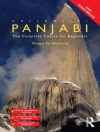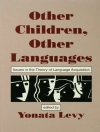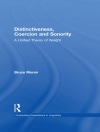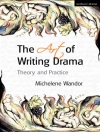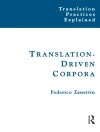This edited book focuses on the ways in which contemporary societal challenges are constructed, mediated and lived through language and other semiotic modalities in new on- and off-line spaces. It conceives of linguistic repertoires as part of dynamic assemblages that can enable an understanding of the ways in which different bodies, lived experiences, discourses, semiotic resources, and objects intra-act, change and ‘become’ together in unpredictable ways. The chapters reveal the conditions under which such assemblages occur and the nature of the entangled elements that enable certain practices to emerge and then either to endure or disappear, drawing on a range of critical sociolinguistic and discourse analytical methods to explore how histories, languages, bodies, and the material realisation of each space intra-act in the production of determinations of (linguistic) legitimacy and worth, shaping contemporary ideologies of belonging and, thereby, other possibilities. This book will be of interest to students and researchers in fields including sociolinguistics, anthropology, migration studies, and education.
Table des matières
Chapter 1. Dynamics of multilingualism: Spatialised repertoires and representations in unstable times (Caroline Kerfoot and Maria Kuteeva).- Chapter 2.- Testing the limits: A bodily response to engineered affect in a museum exhibition (Natalia Volvach).- Chapter 3.- Translanguaging the diaspora through religion: The creative construction of spatial repertoires in an African Pentecostal church (Michele Cunico).- Chapter 4.- ‘¡Hey! Un patacón ahí ”: Mobilization of meanings and construction of identities in the Getsemaní neighborhood (Cartagena de Indias, Colombia) in Bizarre Foods (Julio Armando Morales-Fonseca).- Chapter 5.- “As if by magic, the gate will open once you have said what you want” – Gateways as agents in semiotic practices (Anna Mammitzsch).- Chapter 6.- Language, identity, and the body in relation to others: Making sense in a new migratory space (Tim Roberts).- Chapter 7.- “I don’t speak Lithuanian in Sweden” – Anassemblage approach to heritage language practices (Frederik Bissinger).- Chapter 8.- “[I don’t know why he has] an American accent, super weird”: Ideological denaturalisation and the discursive construction of authentic accents in You Tube comment sections (Kate O’Farrell).- Chapter 9.- Coda (Brigitta Busch).
A propos de l’auteur
Maria Kuteeva is Professor of English Linguistics in the Department of English, Stockholm University, Sweden.
Caroline Kerfoot is Professor in Bilingualism at the Centre for Research on Bilingualism, Stockholm University, Sweden.


